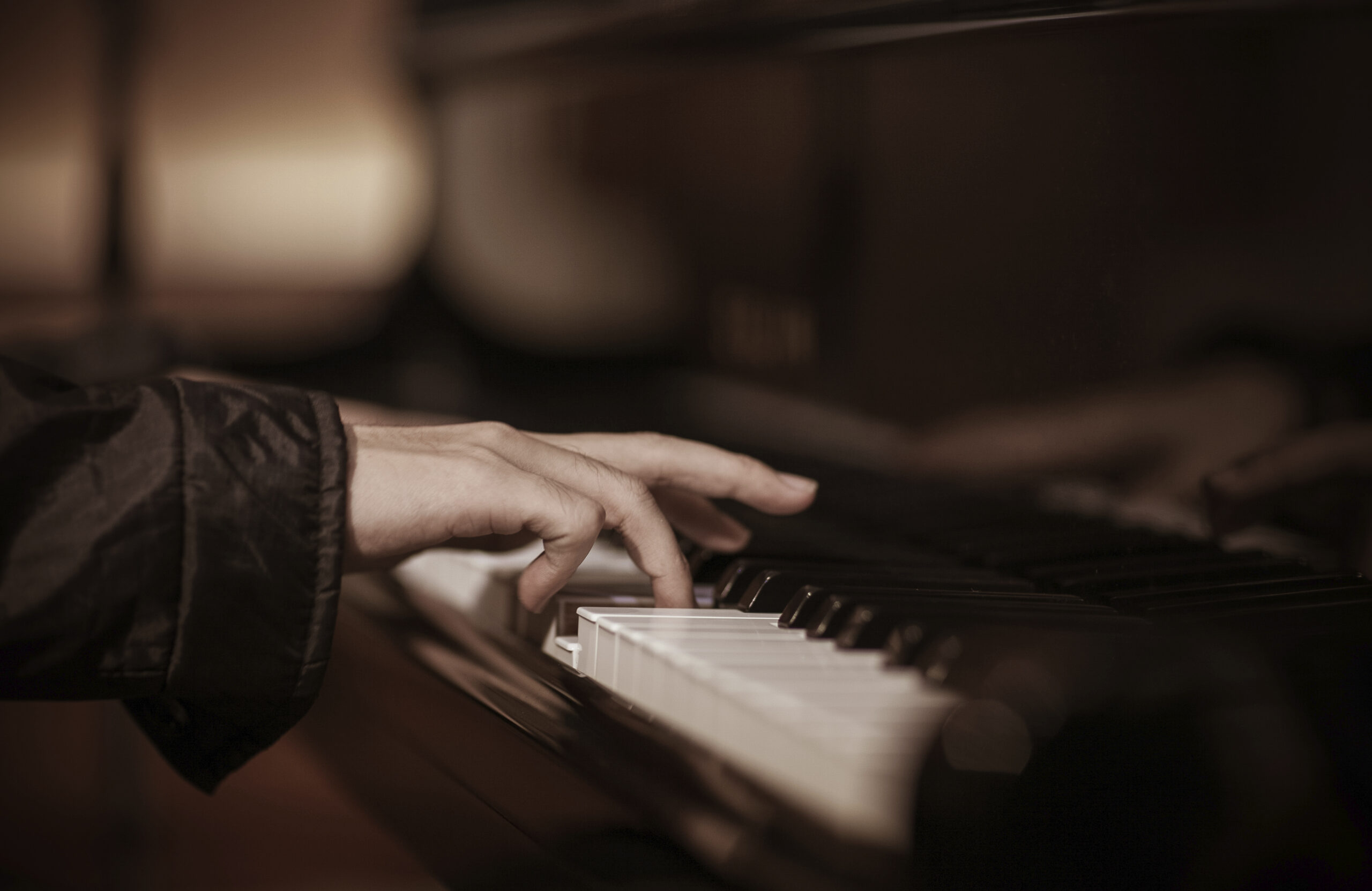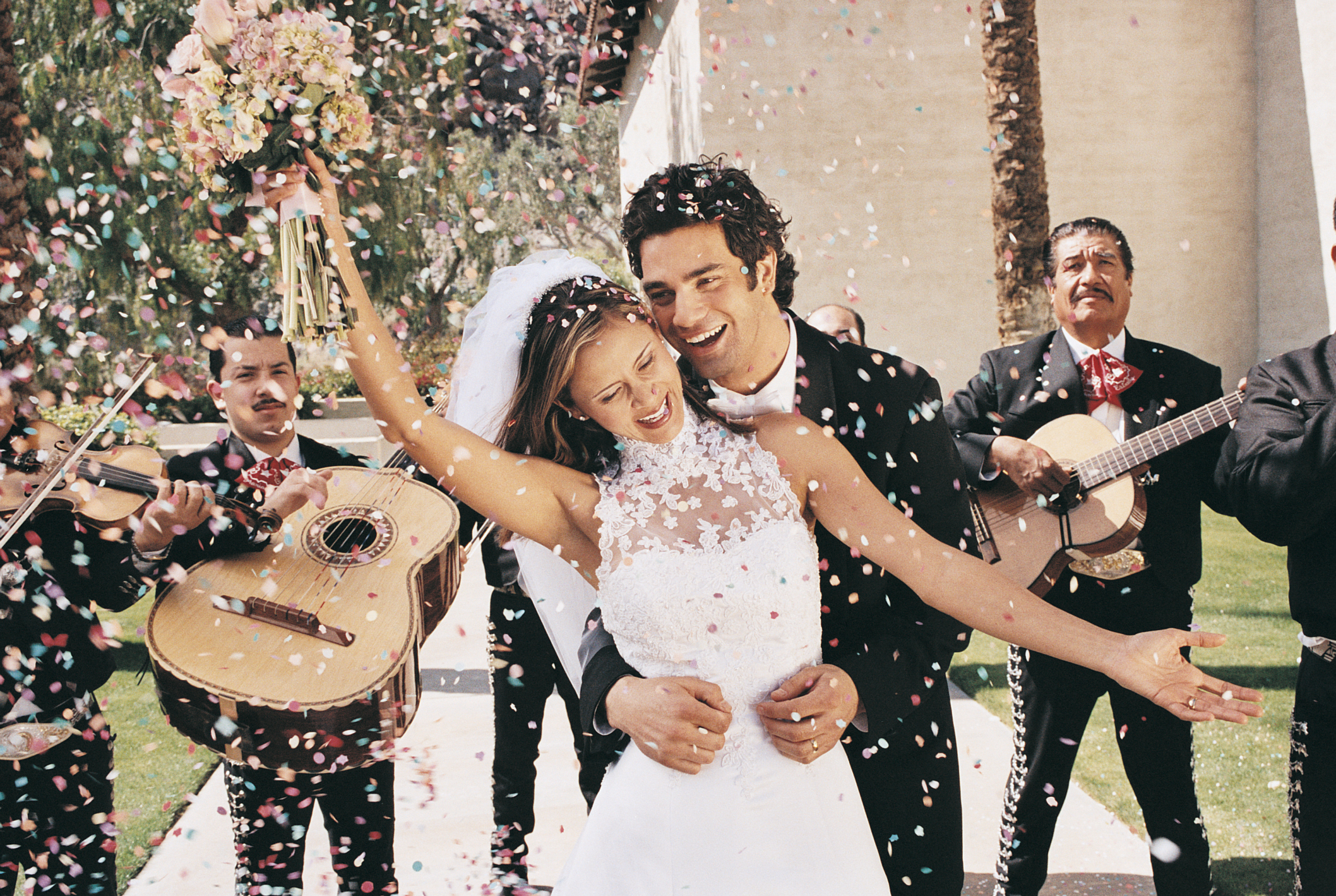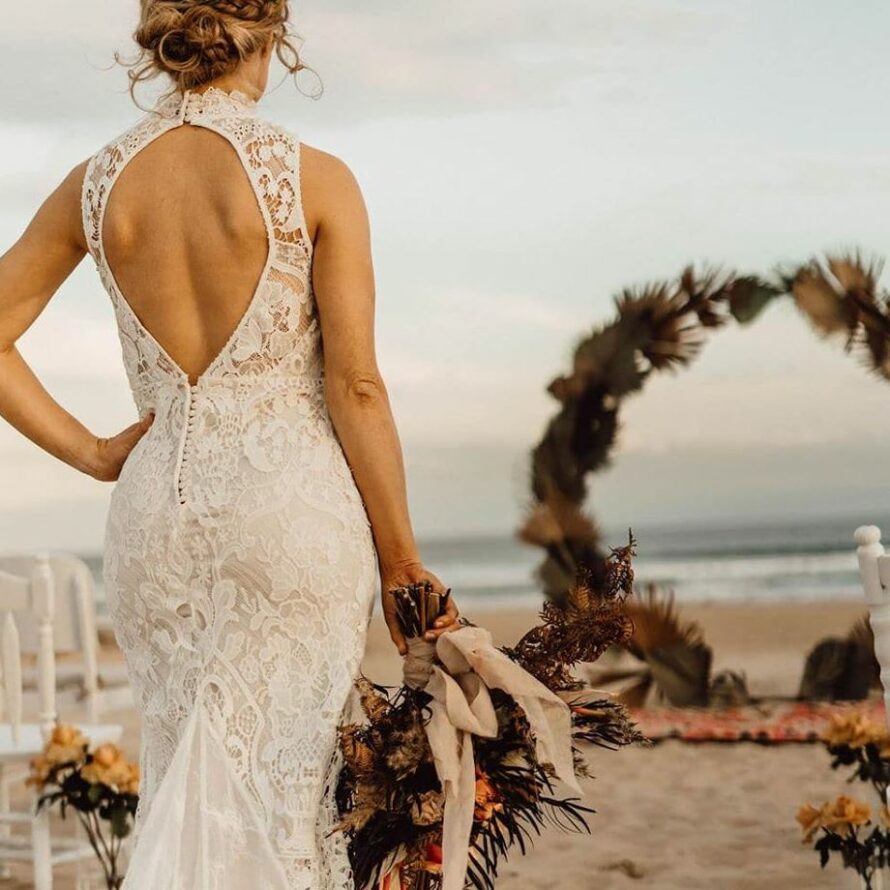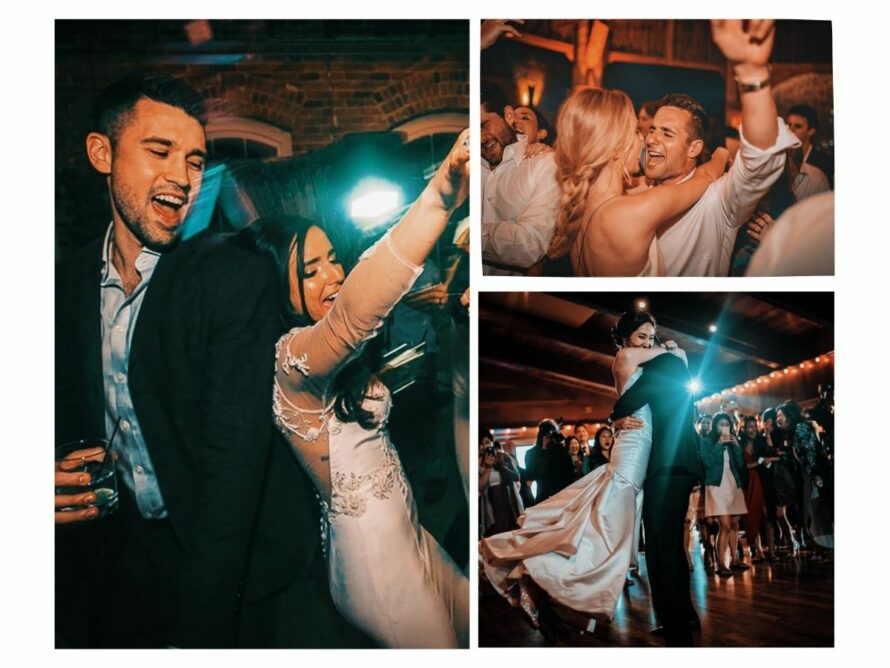Whether you are having a wedding that reflects your family’s religion, culture and origins, or simply planning a themed wedding, you may be on the hunt for traditional wedding music. Let’s take a brief look at Celtic, Jewish, Italian, Indian, Catholic, and Christian wedding music.
Celtic wedding music
Celtic wedding music adds atmosphere and originality to your wedding day, and is the perfect way to honour Scottish, Welsh or Irish ancestors. Celtic wedding music ranges from wistful lilting melodies to lively jigs and reels, so you are sure to find pieces to accompany every part of your big day.
Celtic bands may include a flute, tin whistle, Celtic harp, fiddle, hammered dulcimer, Scottish Highland pipes, Irish Uillean pipes, bouzouki, or button accordion, and are often accompanied by a caller, allowing you to feature a Ceilidh as part of your reception. Popular Celtic tunes include, ‘Skye Boat Song’, ‘Scarborough Faire’, ‘The Star of County Down’ and ‘Mairi”s Wedding’ (The Lewis Bridal Song).
Jewish wedding music
Jewish wedding ceremonies don’t usually feature much music, although ‘Baruch Chaba’ (Blessed is He), may be played as the bride makes her entrance, and traditional Jewish pieces such as ‘Dodi Li’ (My Beloved is Mine, and I am His) may be played during the signing of the register.
However, music is always played at Jewish wedding receptions, with a medley of songs including ‘Hava Nagila’ (Come Let Us be Glad) being played during the ‘Hora’. Some may choose to include klezmer music in their reception, a type of secular celebratory music played by Ashkenazi Jews. It is supposed to represent an accompanied human voice, and is intended for dancing.
Italian wedding music
The majority of Italians are Catholic, so music played during an Italian wedding ceremony tends to focus on catholic hymns. Italian wedding receptions, on the other hand, are vibrant, noisy, passionate affairs, and the music played reflects this.
The most famous Italian party song is ‘Cella Luna’, and you will always hear this played at weddings along with a variety of others such as ‘Calabrisella Mia Futura’ and ‘Sciuri Sciuri’. Lively music will accompany Italian wedding rituals such as the Money Dance and the Tarantella.
Indian wedding music
Hinduism is the largest religion in India, and Hindu weddings last for around five days including a number of different ceremonies, each with its own music and lyrics that signify the stage of the wedding that the bride or groom has reached.
Traditional Indian bands will include instruments such as a sitar, tabla, tempura, dhol, and tumba, although many Indian weddings also feature a modern DJ playing a lot of Bollywood hits. These might include ‘Babul Ki Duaayein Leti Ja’, ‘Joote Dedo Paise Lelo’ and ‘Mehndi Laga Ke Rakhna’.
Catholic wedding music
The Catholic Church has certain rules about music played during a wedding ceremony. It must be liturgical; giving praise to God, pastoral; so the congregation can join in, and musical; performed by competent musicians.
Catholic hymns you may want to consider for a catholic wedding ceremony include ‘All Hailed Adored Trinity’, ‘Love Divine, All Love Excelling’, and ‘Joyful, Joyful, We Adore Thee’. Depending on the type of service you have you may also need to sing the Sanctus, Memorial Acclamation, Great Amen and Agnes Dei.
Christian wedding music
Traditional Christian wedding ceremony music is played on a church organ, and sung by a church choir. It is customary to sing two or three hymns during a Christian wedding ceremony, and some examples are ‘Make Me A Channel Of Your Peace’, ‘Praise My Soul The King Of Heaven’, and ‘Great is Thy Faithfulness’. You could also include Contemporary Christian Music or gospel music for a modern or uplifting edge.




